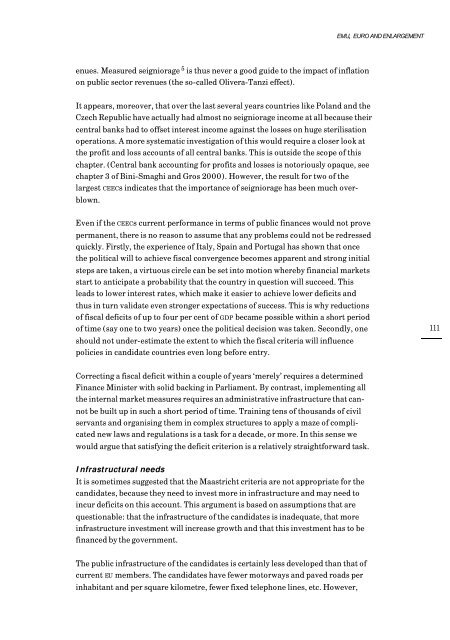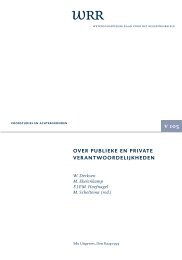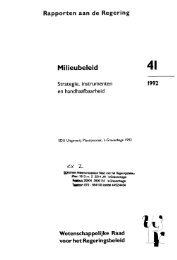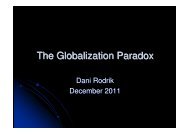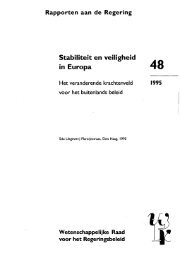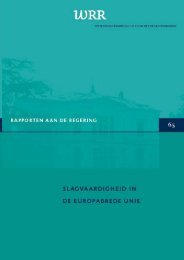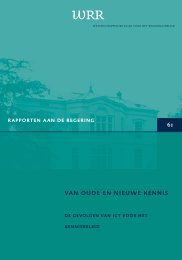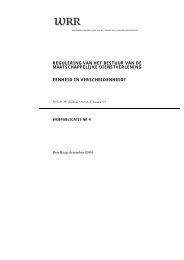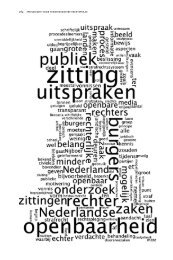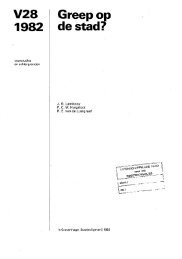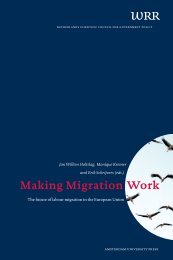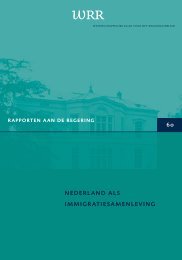w 109 long-run economic aspects of the european union's eastern ...
w 109 long-run economic aspects of the european union's eastern ...
w 109 long-run economic aspects of the european union's eastern ...
Create successful ePaper yourself
Turn your PDF publications into a flip-book with our unique Google optimized e-Paper software.
EMU, EURO AND ENLARGEMENTenues. Measured seigniorage 5 is thus never a good guide to <strong>the</strong> impact <strong>of</strong> inflationon public sector revenues (<strong>the</strong> so-called Olivera-Tanzi effect).It appears, moreover, that over <strong>the</strong> last several years countries like Poland and <strong>the</strong>Czech Republic have actually had almost no seigniorage income at all because <strong>the</strong>ircentral banks had to <strong>of</strong>fset interest income against <strong>the</strong> losses on huge sterilisationoperations. A more systematic investigation <strong>of</strong> this would require a closer look at<strong>the</strong> pr<strong>of</strong>it and loss accounts <strong>of</strong> all central banks. This is outside <strong>the</strong> scope <strong>of</strong> thischapter. (Central bank accounting for pr<strong>of</strong>its and losses is notoriously opaque, seechapter 3 <strong>of</strong> Bini-Smaghi and Gros 2000). However, <strong>the</strong> result for two <strong>of</strong> <strong>the</strong>largest CEECs indicates that <strong>the</strong> importance <strong>of</strong> seigniorage has been much overblown.Even if <strong>the</strong> CEECs current performance in terms <strong>of</strong> public finances would not provepermanent, <strong>the</strong>re is no reason to assume that any problems could not be redressedquickly. Firstly, <strong>the</strong> experience <strong>of</strong> Italy, Spain and Portugal has shown that once<strong>the</strong> political will to achieve fiscal convergence becomes apparent and strong initialsteps are taken, a virtuous circle can be set into motion whereby financial marketsstart to anticipate a probability that <strong>the</strong> country in question will succeed. Thisleads to lower interest rates, which make it easier to achieve lower deficits andthus in turn validate even stronger expectations <strong>of</strong> success. This is why reductions<strong>of</strong> fiscal deficits <strong>of</strong> up to four per cent <strong>of</strong> GDP became possible within a short period<strong>of</strong> time (say one to two years) once <strong>the</strong> political decision was taken. Secondly, oneshould not under-estimate <strong>the</strong> extent to which <strong>the</strong> fiscal criteria will influencepolicies in candidate countries even <strong>long</strong> before entry.111Correcting a fiscal deficit within a couple <strong>of</strong> years ‘merely’ requires a determinedFinance Minister with solid backing in Parliament. By contrast, implementing all<strong>the</strong> internal market measures requires an administrative infrastructure that cannotbe built up in such a short period <strong>of</strong> time. Training tens <strong>of</strong> thousands <strong>of</strong> civilservants and organising <strong>the</strong>m in complex structures to apply a maze <strong>of</strong> complicatednew laws and regulations is a task for a decade, or more. In this sense wewould argue that satisfying <strong>the</strong> deficit criterion is a relatively straightforward task.Infrastructural needsIt is sometimes suggested that <strong>the</strong> Maastricht criteria are not appropriate for <strong>the</strong>candidates, because <strong>the</strong>y need to invest more in infrastructure and may need toincur deficits on this account. This argument is based on assumptions that arequestionable: that <strong>the</strong> infrastructure <strong>of</strong> <strong>the</strong> candidates is inadequate, that moreinfrastructure investment will increase growth and that this investment has to befinanced by <strong>the</strong> government.The public infrastructure <strong>of</strong> <strong>the</strong> candidates is certainly less developed than that <strong>of</strong>current EU members. The candidates have fewer motorways and paved roads perinhabitant and per square kilometre, fewer fixed telephone lines, etc. However,


